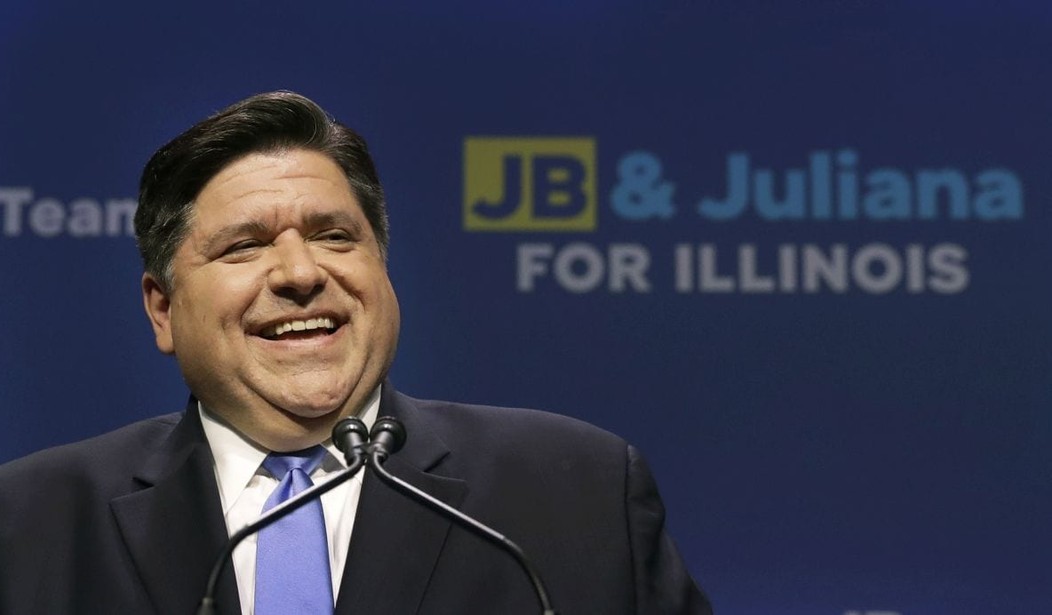Hallelujah and glory be! Illinois Governor J.B. Pritzker has saved the teaching profession!
Well, not exactly. Pritzker and the Democrats in the Illinois legislature have paid their campaign debt to the teachers’ unions by overturning a vital piece of pension reform.
“Pension spiking” is explained by the Chicago Tribune:
For many years some school boards in Illinois, especially in suburban Chicago, routinely handed out the “two 20s.” What was that? As public school teachers and administrators neared retirement age, they received two back-to-back 20% pay hikes as a way to boost their pensions.
Not all districts were as generous. But the practice of eye-popping end-of-career pay hikes became the norm. Because pensions are based on an educator’s four highest years of pay, school boards would reward their retiring teachers and administrators on the way out the door, passing those now-higher pension costs onto the state.
The state education association was ecstatic:
Illinois Education Association President, Kathi Griffin, released a statement claiming victory, saying, “Educators from around the state stepped up to save our profession and protect our students. It’s amazing to see how powerful we can be when we are united.”
This session was a win for teachers’ unions, but not so much for taxpayers and homeowners who will pay more, nor for students who without reforms will likely continue to see educational quality decline.
As the Tribune points out, there are serious consequences to piling more financial obligations onto the overburdened pension system:
Those teachers unions applauded Pritzker’s budget that raised the cap from 3% to 6%. The trade-off, of course, is increased strain on the teachers’ pension fund, which is heavily subsidized by taxpayers statewide. The Teachers Retirement System, which funds the pensions of teachers outside Chicago, as of last summer carried unfunded pension liabilities of more than $75 billion. The system’s own website currently warns visitors that TRS “has less than 40 cents in the bank for every dollar owed to members.”
The teachers’ retirement fund isn’t the only public pension system in trouble in Illinois. Unfunded liabilities for all public pensions outside of Chicago amount to a staggering $75 billion. And the burden being transferred to Illinois taxpayers is becoming overwhelming:
A new report shows again pension reform is the only responsible option to fix Illinois’ failing finances.
Spending would need to nearly double to more than half of all state revenue in order to fully fund Illinois government worker retirement benefits at current levels, according to a report from Michael Cembalest, a researcher for J.P. Morgan. Illinois state and local governments already spend a greater percentage of revenue on pension benefits and retiree health care than any other state in the nation.
Cembalest calculated that spending on pensions, retiree health care, and interest on debt would need to consume 51% of all state revenue in Illinois to fully pay off current obligations over 30 years, assuming a 6% return on pension fund investments.
Pritzker just signed a tax bill that more than doubles the gas tax and adds a dollar to the price of a pack of cigarettes. What happened next was as predictable as the sun rising in the morning.
“I didn’t fill up my gas here before, but now I will,” Reynolds said at the Luke Gas Station, 1051 Indianapolis Blvd., Whiting. “It’s a crime that they’re doing it because we have to get to work. We have two cars and I’m going to have to switch cars and fill up over here — one day with one car and another day with the other.”
Other Illinois residents are expected to join Reynolds at Indiana gas stations where the state’s 29-cent-per-gallon gas tax is 9 cents lower than in Illinois.
The capital flight is already underway, not to mention the exodus of citizens who have moved. You can almost feel the energy being drained from the state as high taxes, deteriorating schools, high crime rates, and a disgust at politicians from both parties imparts a sense of helplessness and discouragement.
Yes, but at least the teachers are happy.










Join the conversation as a VIP Member